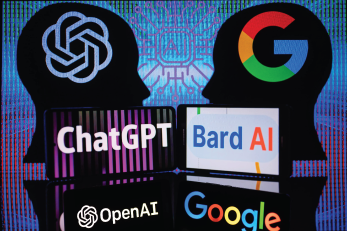The fifth installment of the video series on AI ethics, entitled “Challenges and Governance,” addresses these pressing issues. Available in multiple languages, including English, French, and Japanese, this episode provides a comprehensive overview of regulatory trends across regions and explores the ethical considerations critical to building fair and inclusive global AI governance systems.
Translating Ethical Principles into Action
Ethical principles such as privacy, equality, and inclusion serve as guiding stars for AI governance. However, operationalizing these principles is far from straightforward. Several steps can bridge the gap between ethical ideals and real-world implementation:
- Integrating Bias Audits in AI Development Developers must conduct rigorous bias audits to ensure AI systems do not perpetuate or amplify existing inequities. These audits should be mandatory at multiple stages of development, examining datasets, algorithms, and outcomes.
- Promoting Transparency and Accountability AI systems should be designed with explainability in mind. Users and regulators need to understand how decisions are made, especially in high-stakes applications like hiring or criminal justice. Transparent systems foster trust and make accountability possible.
- Embedding Inclusion in Design Diverse teams are crucial for creating AI systems that reflect a variety of perspectives and minimize biases. Inclusion must extend to end-users, involving communities impacted by AI in co-design processes.
- Developing Cross-Sector Collaboration Ethical AI development requires input from technologists, ethicists, policymakers, and civil society. Collaborative frameworks can help reconcile technological advancements with societal values.
The Global Governance Landscape
The “Challenges and Governance” video highlights current efforts to regulate AI across different regions, emphasizing the need for globally coordinated approaches. Some notable trends include:
- Europe’s AI Act: Europe is spearheading AI regulation with its comprehensive AI Act, which categorizes AI applications by risk levels and imposes strict requirements on high-risk systems.
- United States: The U.S. focuses on sector-specific guidelines and fostering innovation while addressing ethical concerns through frameworks like the Blueprint for an AI Bill of Rights.
- China: With an emphasis on state control, China’s regulations prioritize national security and economic development, raising questions about privacy and individual freedoms.
Despite regional differences, there is a growing consensus on the need for international cooperation. Global governance frameworks can harmonize standards, address cross-border challenges, and ensure AI’s benefits are equitably distributed.
Addressing Key Ethical Challenges
- Balancing Innovation and Regulation Overregulation risks stifling innovation, while underregulation may lead to harm. Striking this balance is crucial for fostering responsible AI development.
- Ensuring Global Inclusivity AI governance must account for disparities in technological capabilities and resources. Developing nations should be included in global discussions to avoid perpetuating digital divides.
- Mitigating Long-Term Risks Beyond immediate concerns, governance frameworks should address long-term risks, such as AI’s impact on employment and societal structures. This requires foresight and adaptability.
Moving Forward
As AI continues to evolve, ethical governance must remain a dynamic process. The insights shared in the “Challenges and Governance” video underscore the importance of global dialogue and action. Translating principles like privacy, equality, and inclusion into tangible practices will require collective effort, innovation, and a steadfast commitment to fairness.
By addressing these challenges proactively, we can ensure that AI serves as a tool for empowerment rather than a driver of inequity. As the conversation around AI ethics grows, resources like this video series play a pivotal role in shaping a future where AI benefits all of humanity.


